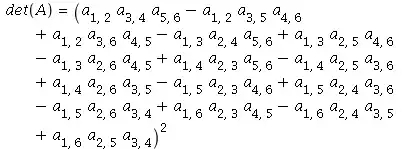A proof that doesn't use complex eigenvalues:
Let $B = A - A^T$. We note that $B^T = -B$. Note that for any vector $x$, we have $x^TBx = 0$ since
$$
x^TBx = (x^TBx)^T = x^TB^Tx = -(x^TBx).
$$
Claim: For any $t > 0$, $\det(B + tI) \neq 0$.
Proof: Suppose for contradiction that $(B + tI)$ is singular. Let $x$ be a non-zero element of $\ker(B + tI)$. We have
$$
(B + tI)x = 0 \implies Bx = -tx \implies x^TBx = x^T(-tx) \implies 0 = -t(x^Tx),
$$
which is a contradiction. $\qquad \square$
Now, consider the polynomial $p(t) = \det(B + tI)$ over the domain $[0,\infty)$. We note that $p(t)$ has no zeros on the interval $(0,\infty)$, and (by the continuity of the determinant)
$$
\lim_{t \to \infty} \frac{p(t)}{t^n} = \lim_{t \to \infty}t^{-n}\det(B + tI) = \lim_{t \to \infty} \det(t^{-1}B + I) = \det(0 \cdot B + I) = 1.
$$
Thus, $\lim_{t \to \infty}p(t) = +\infty$. By the intermediate value theorem, we can conclude that $p(t)$ is positive over the interval $(0,\infty)$.
By the the continuity of $p$, we can conclude that $p(0) = \lim_{t \to 0^+} p(t) \geq 0$, which is to say that $\det(B) \geq 0$, which was the desired conclusion.
